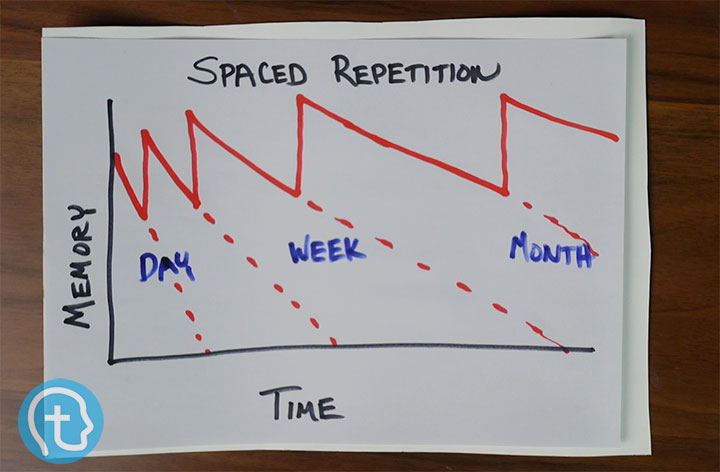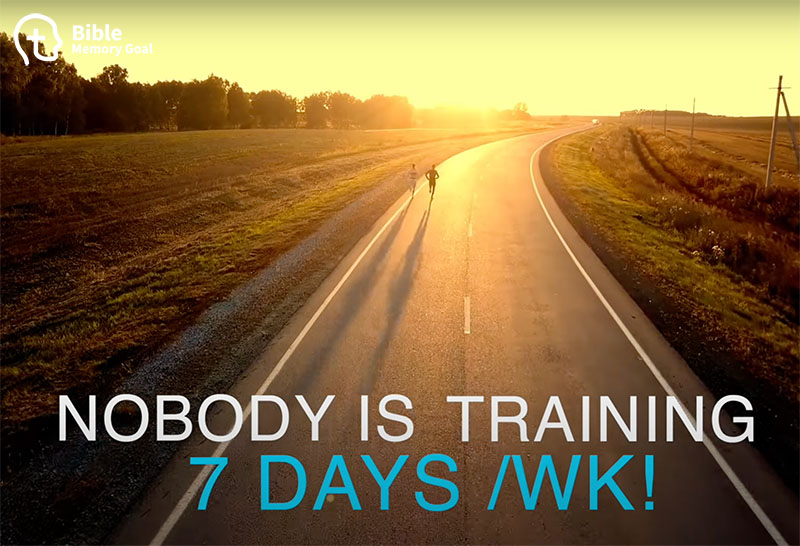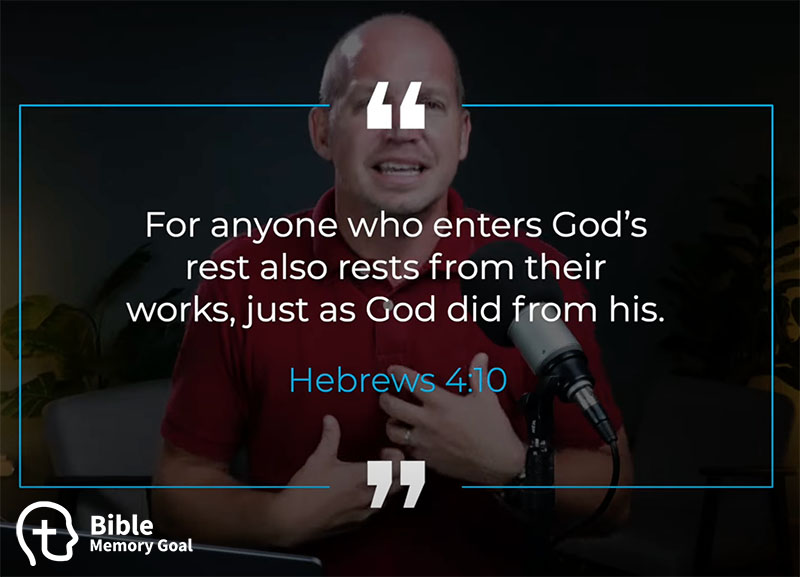What are the five common habits that pastors, Christians and memory experts use to “successfully” memorize Scripture? Throughout all my Bible memory interviews, I’ve seen patterns emerge that explain what they do differently and how you can make changes to your own Scripture memory journey.
In the past, we’ve heard from Pastor Scott Stonehouse about how to build the habit of Bible memory. But we’re taking a different angle here. The question we’re trying to answer is this:
What are the important habits that lead to a long-lasting Bible memory journey?
As I’ve observed people over the years, here are the five habits that stand out above the rest.
They Make it a Daily, Consistent Habit
Consistency is key to the success of any habit.
Most people think this means you need to sit down for 30 minutes or an hour to memorize and review God’s Word, but that doesn’t have to be the case. There are definitely plenty of people I’ve talked to who do put that much of a priority on Bible memory, but they are the exception, not the rule.
Setting aside as little as 5 minutes a day to memorize or recite a verse makes a big difference.

Small gains, when compounded on a daily basis, allow you to make real progress over the long haul.
Compounding interest is a concept that most people associate with finances. When you just break it down into what you make every single day, it’s pennies, but when you add it up over time, that’s when the gains really make sense.
The same thing goes for Bible memory. Making it a consistent habit means:
- Find a time of day that works best for your schedule;
- Find a place where you review or memorize that is the same every day;
- Find a trigger that prompts you to get started. That could be a cup of coffee, your lunch break or even taking your dog on a walk;
If you make that consistent habit something that you are always doing, and it will make a huge difference in your scripture memory.
They Prioritize Substance over Storage
Those who are successful at Bible memory prioritize substance over storage.
What exactly does “substance over storage” mean?
Simply put, it’s not just about how much they memorize. As a matter of fact, most people that I connect with about Scripture memory are hesitant to how many verses or how many books of the Bible that they’ve memorized. What they really crave is a deeper understanding of Scripture, and understanding leads to better memorization.
“Don’t just know the words, know the Word.”
Keith Ferrin
Understanding is the foundation of strong Bible memory. It’s also a good reminder that the act of memorization does not earn us merit in God’s kingdom. As it says in James:
“The devils also believe and tremble.“
James 2:19
Just memorizing Scripture is not enough if you don’t understand and apply God’s words in your life. Those people who are good at scripture memory are those that use scripture memory as a means to go deeper into God’s word.
Add substance, not storage.
They Have a Set System of Review
Those who are successful at Bible memory have built a system review.
Review is not an afterthought or a sporadic “whenever I have time” kind of thing. It’s an integral part of their Scripture memory journey. For those who are new to any kind of memorization, it’s also easily overlooked.
“[When setting my Bible memory goal], what I didn’t take into account was how much time review was going to take…”
2-time memory champion Ron White
I did the same thing when I set my goal to memorize the entire New Testament. I had no idea how much time review was going to take and how much more time it takes the more that I’ve memorized.
When it comes to establishing a set rhythm of review, it comes down to a few things:
- Spaced Repetition: This is the idea that you should space out your review over time as you move a passage of Scripture into long term memory.

- Method of Review: Are you the kind of person who prefer flash cards? Or would you rather use a good Bible memory app on your phone? Or can you speak the verses you’ve memorized out loud, to yourself or to a friend?
If you need some suggestions, I’ve already listed out a number of ideas for Bible memory review that you might find helpful.
I’ve said it before and I’ll say it again. I’m not memorizing just for the sake of memorizing.
I’m memorizing for life.
I want this to be in my heart. I want this to be the last thing that goes in my memory when I have Alzheimer’s and I forget who my grandkids are. I still want to remember what I memorized of the Bible.
They’re Intentional about Meditation
There is a difference between review and meditation.
- When reviewing, we often go through the motions, saying the words so we can check it off our list.
- When meditating, we’re letting that passage of Scripture soak in, trying to understand what it is that God is using that passage to speak to us about.

Memorization allows us as Christians to meditate on God’s Word no matter where we are!
Whether you’re laying in my bed and I can’t go to sleep or driving your car and I can’t actually look down at a Bible, when you have God’s Word memorized, you have even more opportunities to meditate on it. It could even be something as simple as Scripture memory breath prayers.
In short, reviewing doesn’t always equate to meditating; meditating on God’s Word, however, is always a form of review.
Be intentional about meditating on what you’ve memorized
They REST!
This one is HUGE! Everybody I know who’s been successful at Scripture memory has taken time to rest.
That means having a period every week when they rest, or perhaps even every month. I’ve talked to some people who rest on an annual basis. Every time I finish memorizing and reciting a book of the Bible, I take a period of rest.
Rest doesn’t mean I’m not opening my Bible. It just means that I’m not setting goals for myself where I have to memorize more. Maybe I’ll just review. Maybe I’ll just spend that more time on meditation.
But rest is important.
When training for a marathon, athletes will train hard for five or six days out of the week, but serious athletes know that it’s important to spend at least one day to rest and let your body recover.

God is the creator of rest!
He set an example by resting on the seventh day and He constantly encouraged the Israelites to rest not just themselves, but also their land.

And when it comes to Scripture memory, it helps and it benefits you to take that rest because pushing yourself too hard is a recipe for burnout. I’ve seen it happen with many people and have even felt it myself.
Remember: rest is not failure. Rest is a God-given gift that we would be foolish not to take.
Build Your Own Scripture Memory Habits!
I encourage you to take each of these five habits and incorporate them into your own Scripture memory journey.
Be consistent.
Prioritize substance/understanding.
Create a system for review.
Learn how to meditate on Scripture.
Be sure to rest!
God bless you on your journey!
Follow along with all the Bible Memory Goal YouTube videos!


